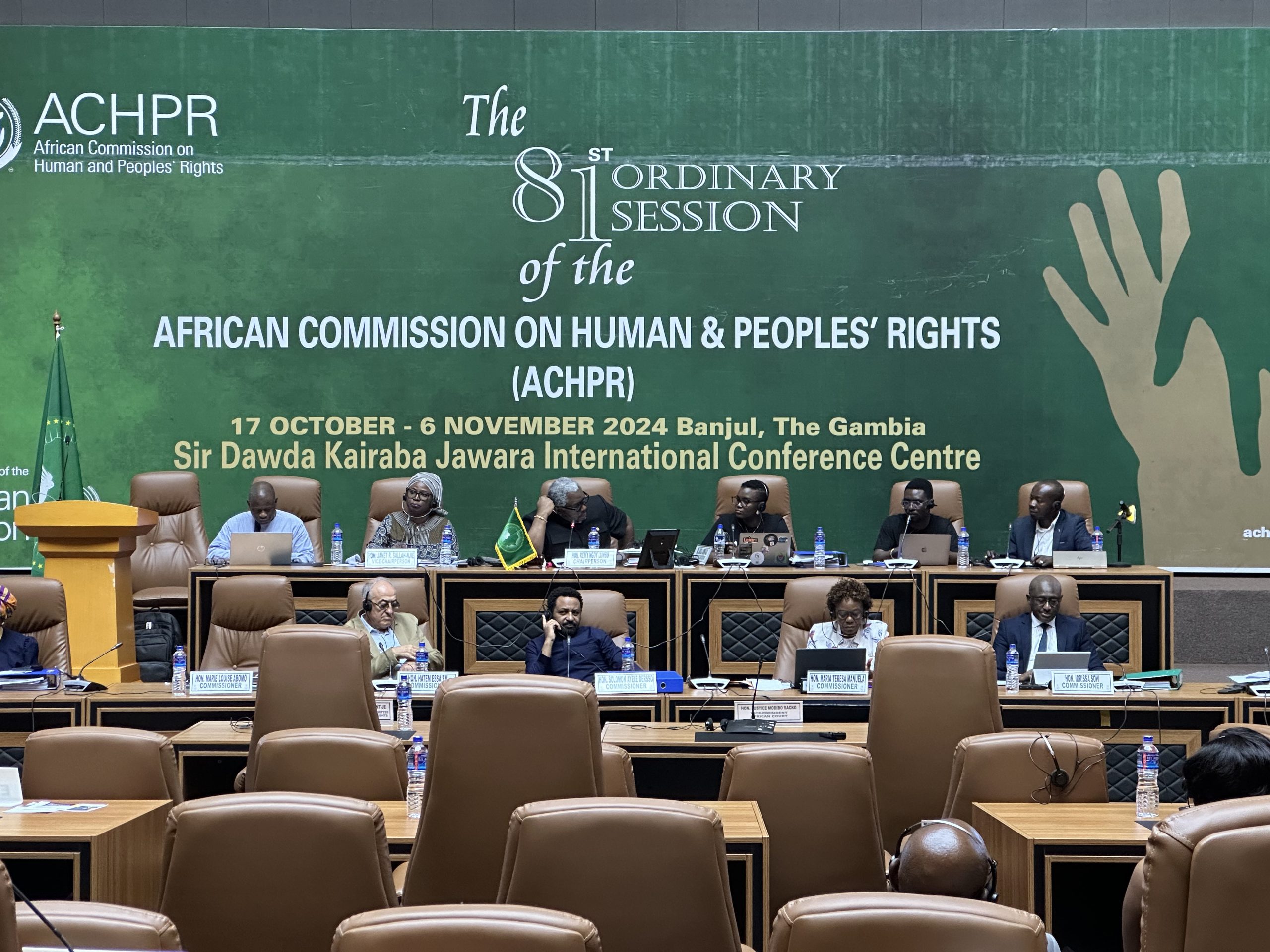
Iran: Human Rights Council must convene a special session
Fifty organisations urge the UN Human Rights Council to urgently convene a special session to address an unprecedented escalation in mass unlawful killings of protesters in Iran.
Photo: ISHR

Panellists in an African Commission debate called for a progressive interpretation of the African Charter to ensure broader participation to Commission proceedings and speed up the implementation of its decisions.
On 23 October 2024, the African Commission on Human and Peoples’ Rights (ACHPR) held a panel on the impact of Article 59(1) of the African Charter on Human and Peoples’ Rights on its communications procedure.
The panel debated the human rights challenges the Commission’s interpretation and application of Article 59(1) pose to the participation of individuals and civil society organisations in ongoing proceedings and better ways for reading that provision.
Participants also reviewed the practice of other human rights bodies with similar functions to the African Commission to demonstrate the absence of a rigid approach to the publicity of relevant documents including decisions, measures and party submissions. This panel’s theme is an offspring of the broader Article 59(1) Campaign of the Litigants Group of which ISHR is a member.
Transparency and participation
Article 59(1) reads as follows: ‘All measures taken within the provisions of the present Chapter shall remain confidential until such a time as the Assembly of Heads of State and Government shall otherwise decide.’
The Commission has extended the principle of confidentiality to ‘documents’ not covered by this provision such as the list of cases pending before it, the submissions of parties and its decisions on seizure.
This approach limits public scrutiny and the ability of civil society organisations to engage actively with the Commission. It undermines their ability to hold governments accountable. The Commission should align its practice with other human rights bodies which tend to make public documents related to pending cases.Mai Aman, Institute for Strategic Litigation in Africa
The Commission’s reading of Article 59(1) has other adverse implications.
‘It prevents documents such as pleadings which put together facts that are in the public domain from being accessed, it undermines the participation of third parties including amicus curiae and prevents parties to proceedings from obtaining in time the decision in a case they initiated,’ clarified Michael Nyarko, deputy director of the Institute for Human Rights and Democracy in Africa.
Some of the Commissioners who took the floor highlighted that problems arising from Article 59(1) were not created by the African Commission but by States who drafted the Charter and wanted proceedings to remain confidential. They recognised at the same time the possibility that the provision could be a hindrance to the exercise of litigants’ rights.
The Chairperson recalled for example that the African Commission’s final communiqués do not indicate the name of parties of communications that were examined during private sessions.
Commissioner Hatem Essaiem also added that the issue could be part of broader African Union reforms while Commissioner Janeth Sallah-Njia reiterated the limitations of the African Commission to change what is provided for by the treaty.
States, however, found it relevant to discuss the matter: representatives of South Africa and the Democratic Republic of Congo indicated the discussion should be broadened and enhanced for States to understand problems that arise and possible solutions.
The Commission’s Secretariat promised to conduct broader consultations with States on the issue.

Fifty organisations urge the UN Human Rights Council to urgently convene a special session to address an unprecedented escalation in mass unlawful killings of protesters in Iran.

In a landmark ruling against Burundi, the UN Committee against Torture has set a precedent on the protection of lawyers and human rights defenders engaging with UN mechanisms, affirming that reprisals for cooperating with the UN violate the Convention Against Torture.

Are you a human rights defender working on democratic backsliding and/or racial justice, keen to use the UN to push for change at home? If so, apply for the 2026 edition of ISHR’s flagship training, the Human Rights Defender Advocacy Programme (HRDAP)!